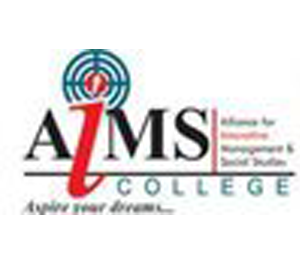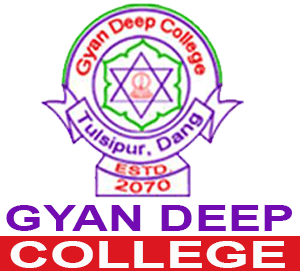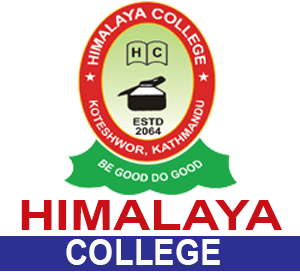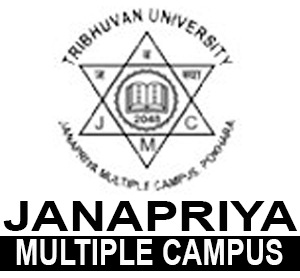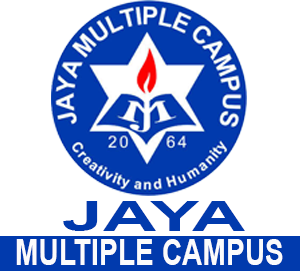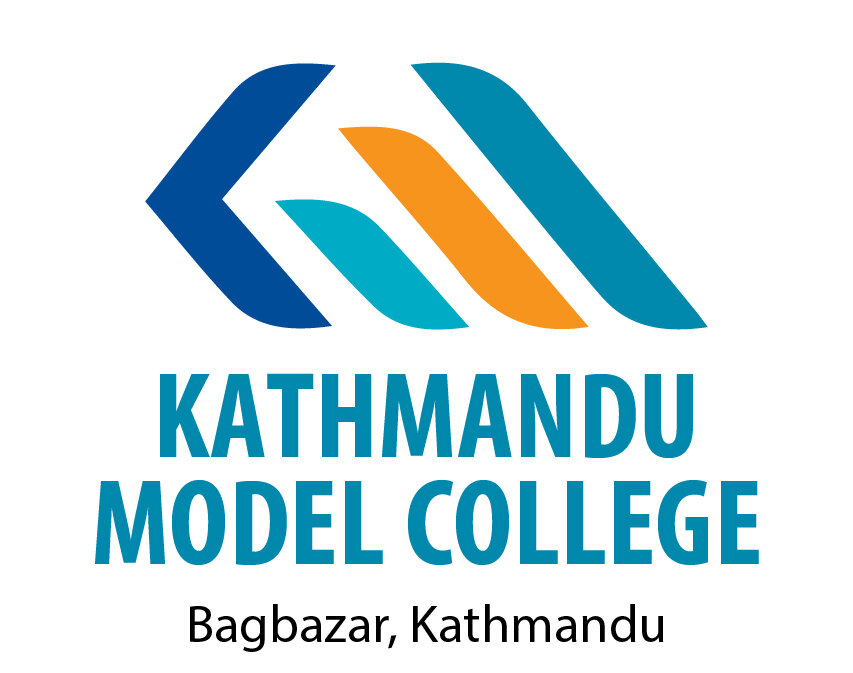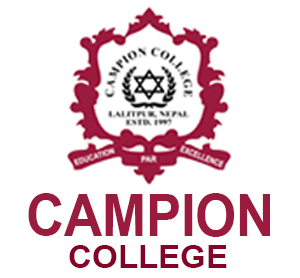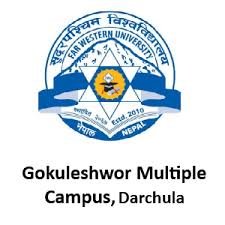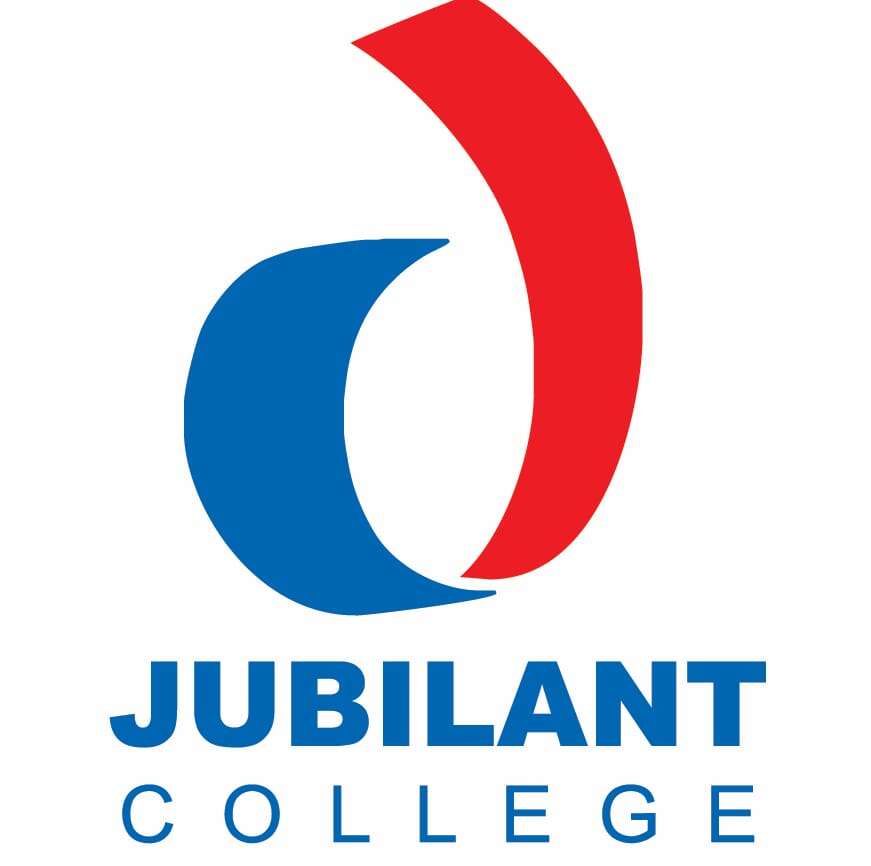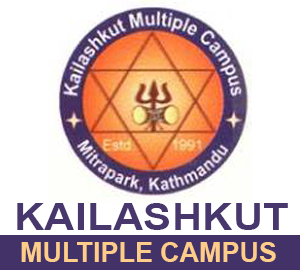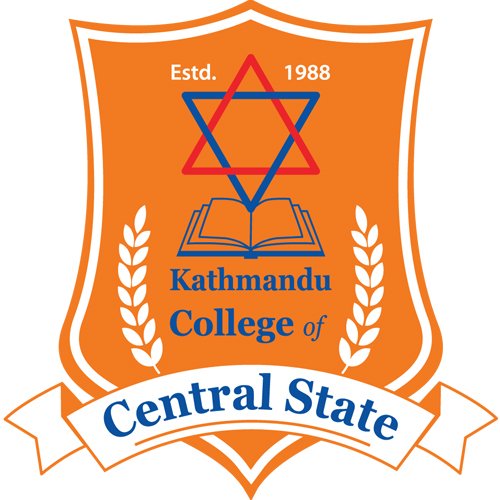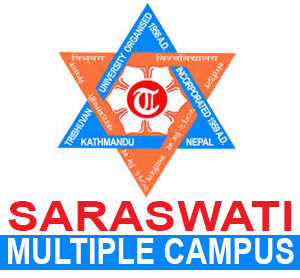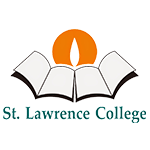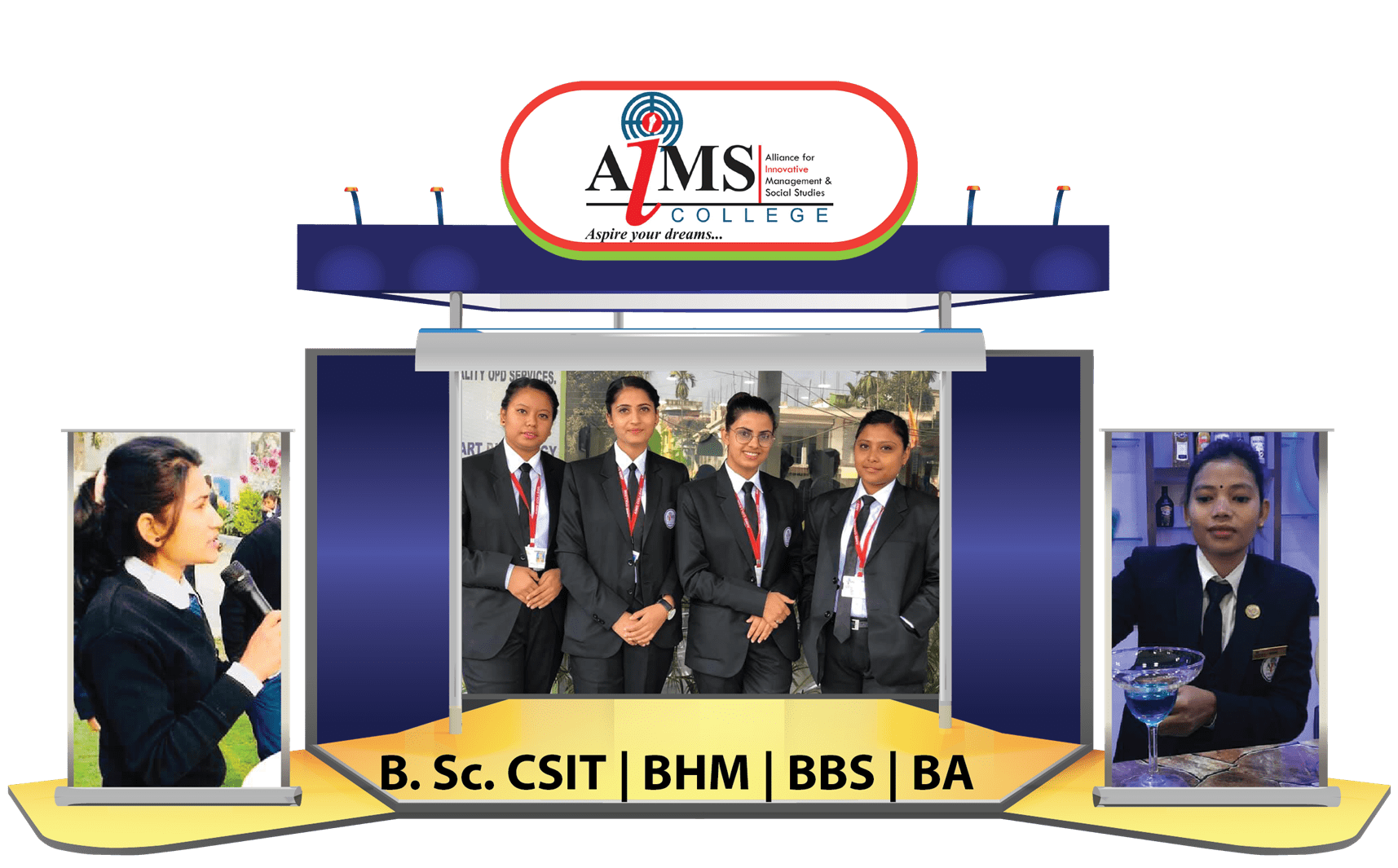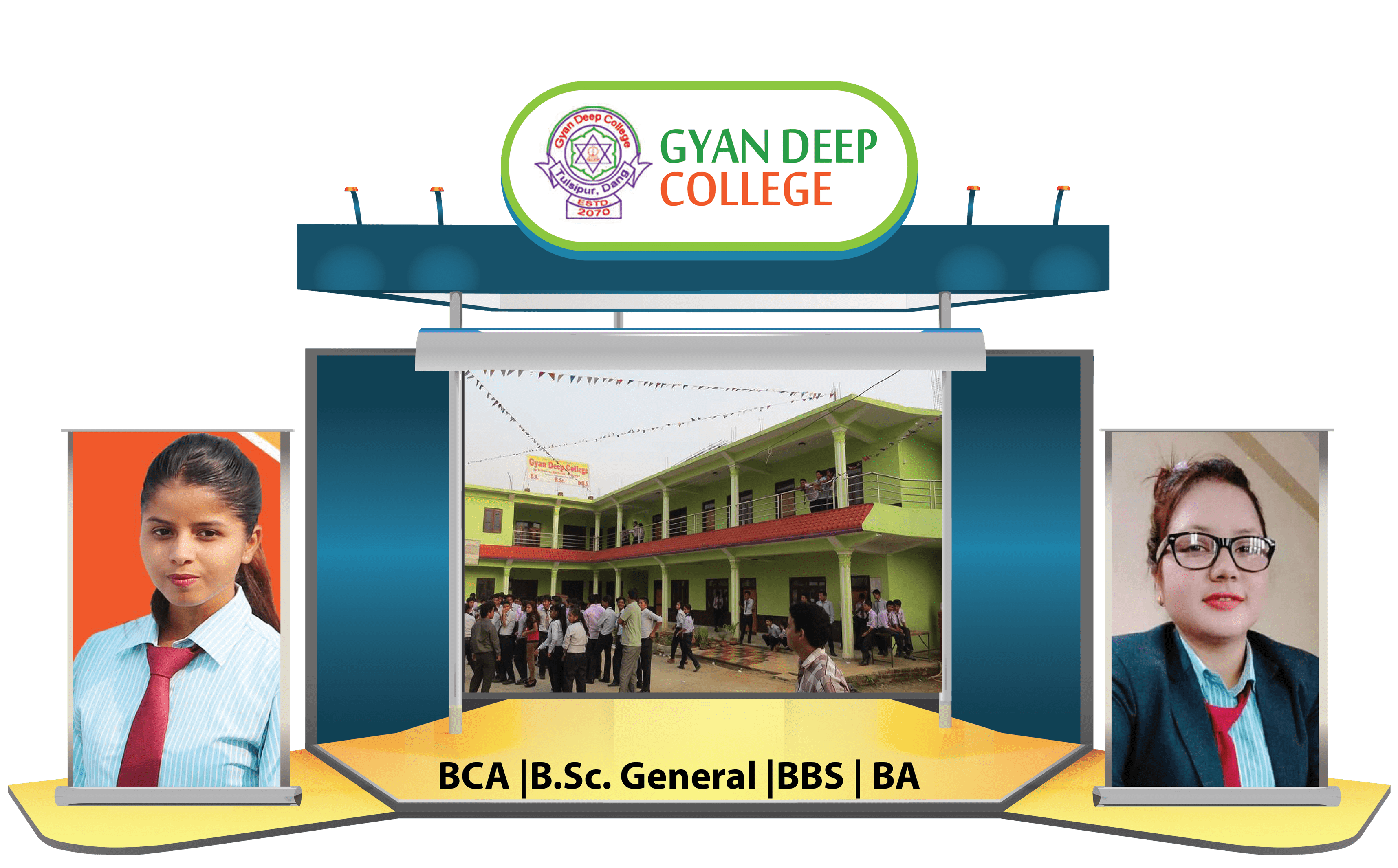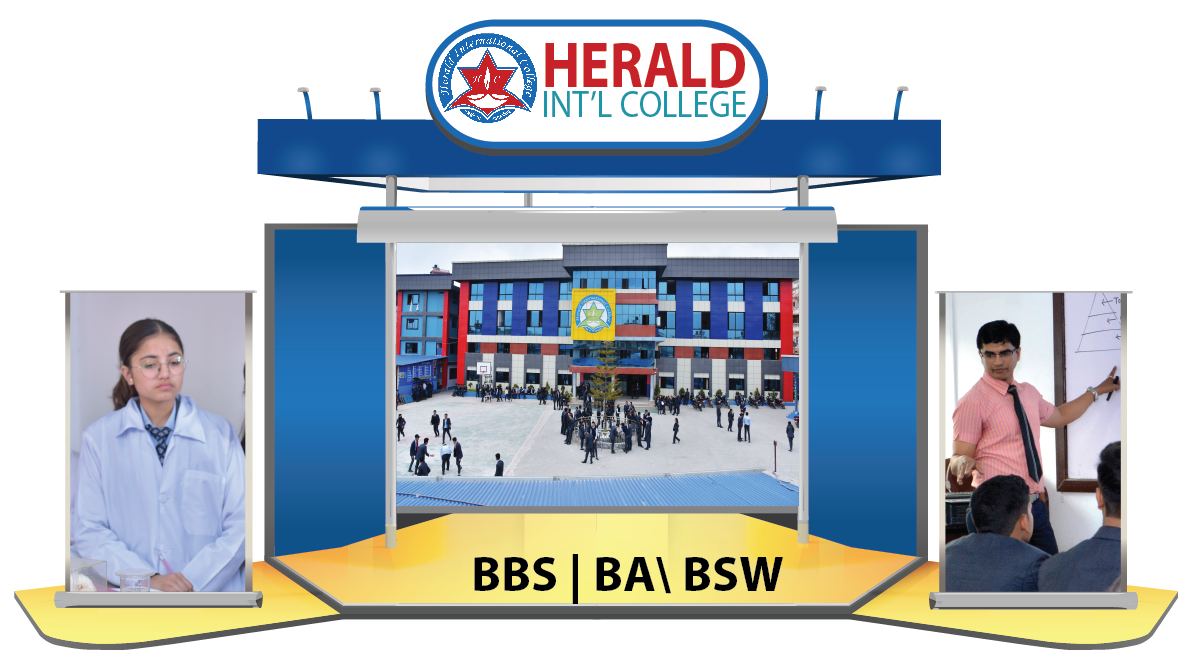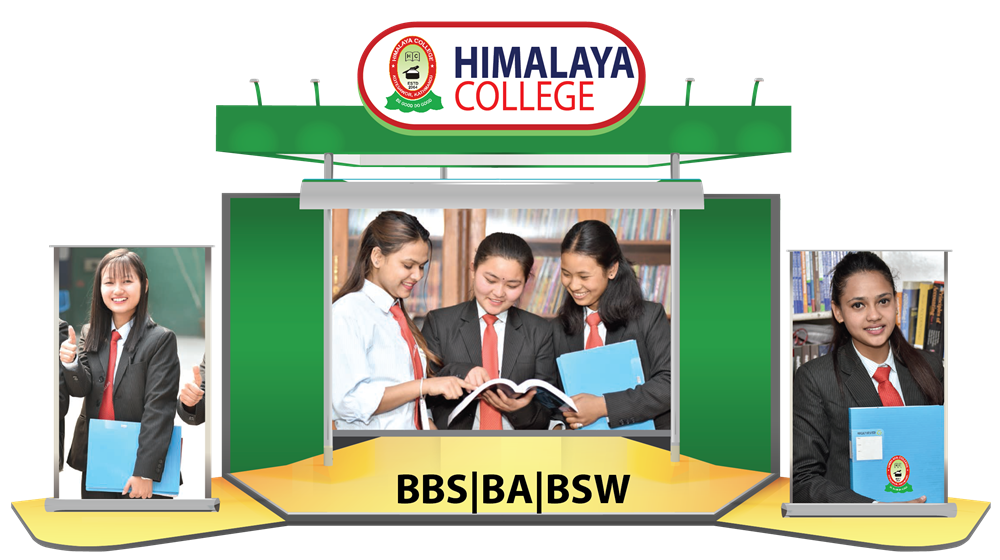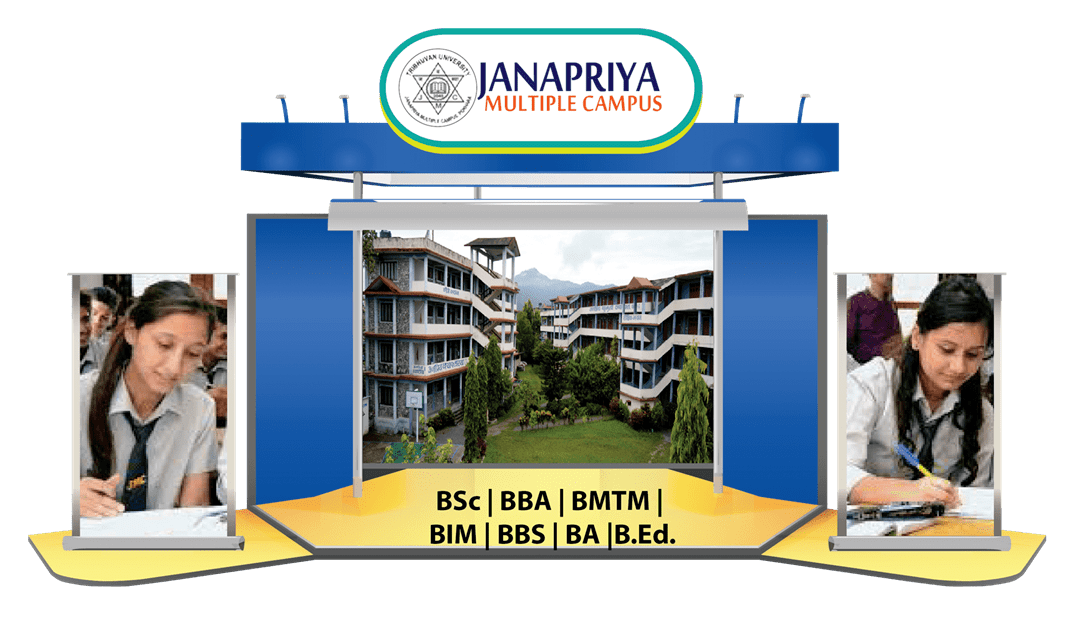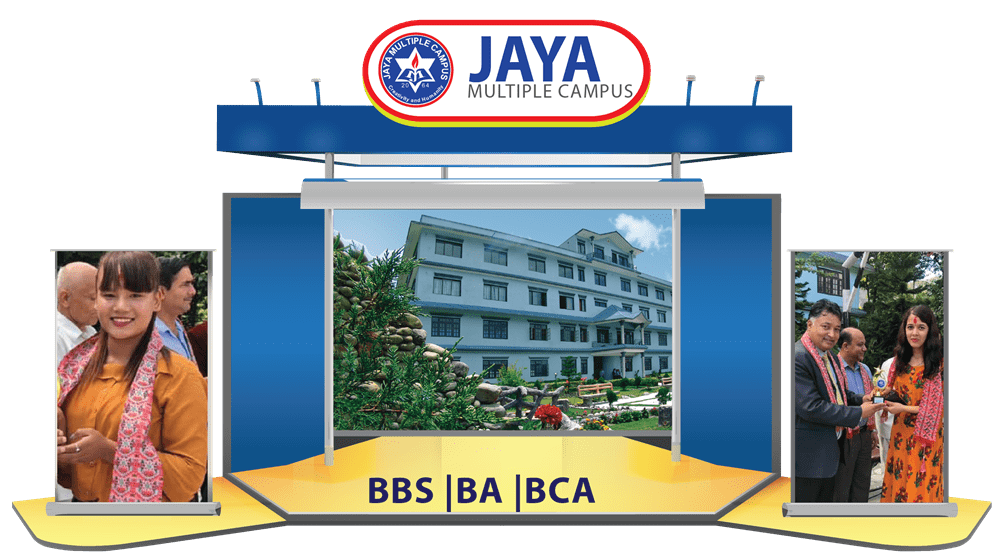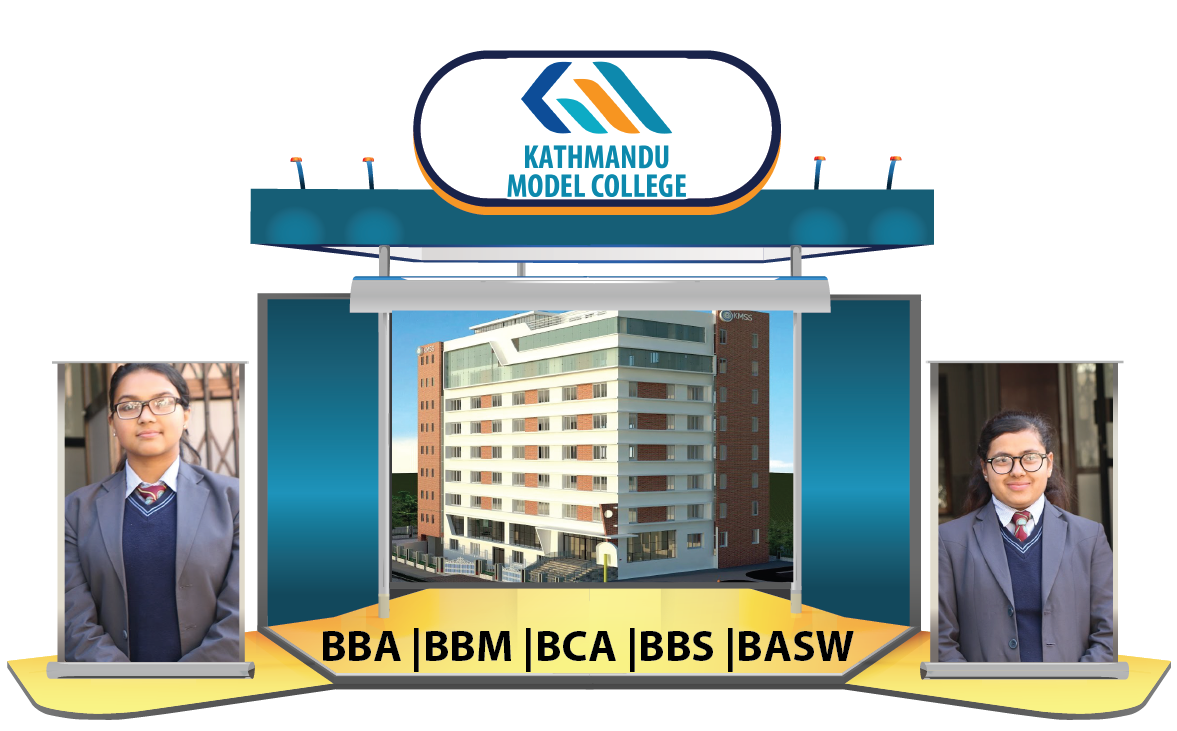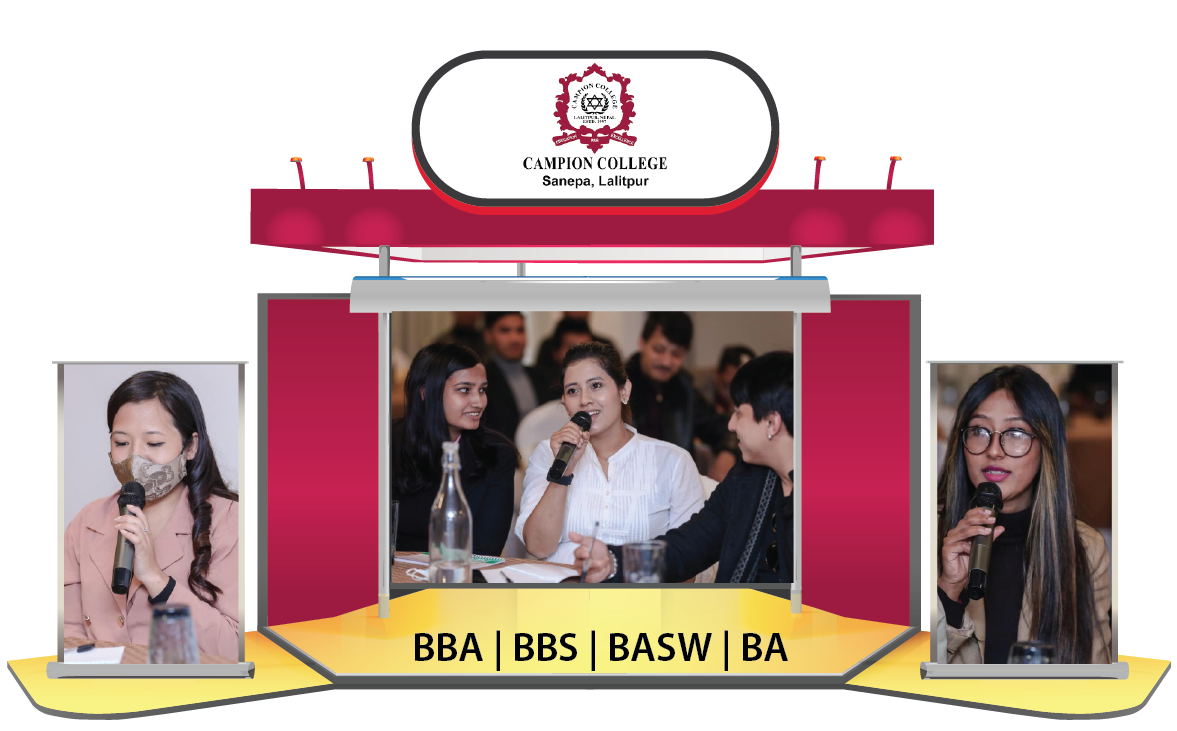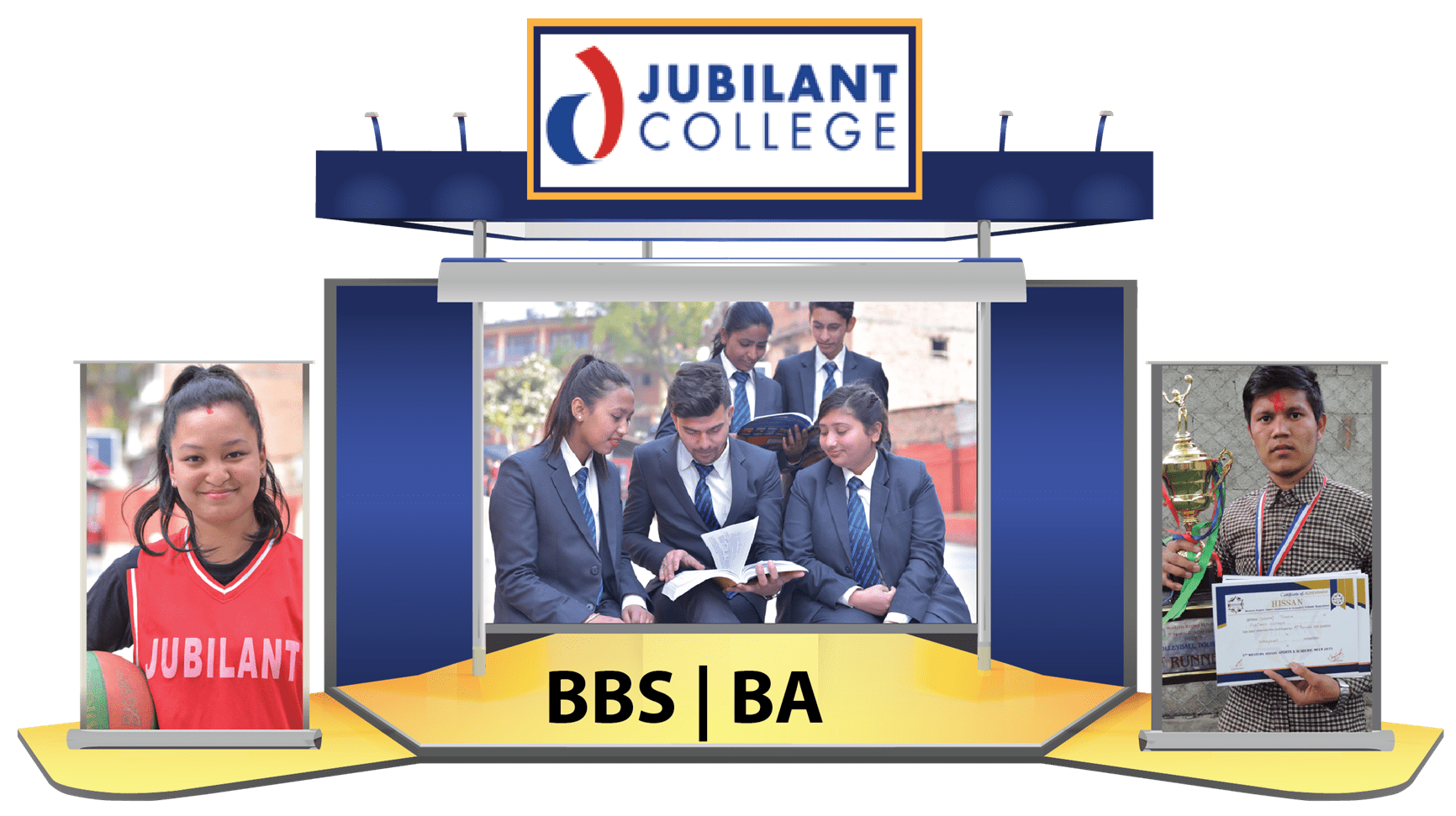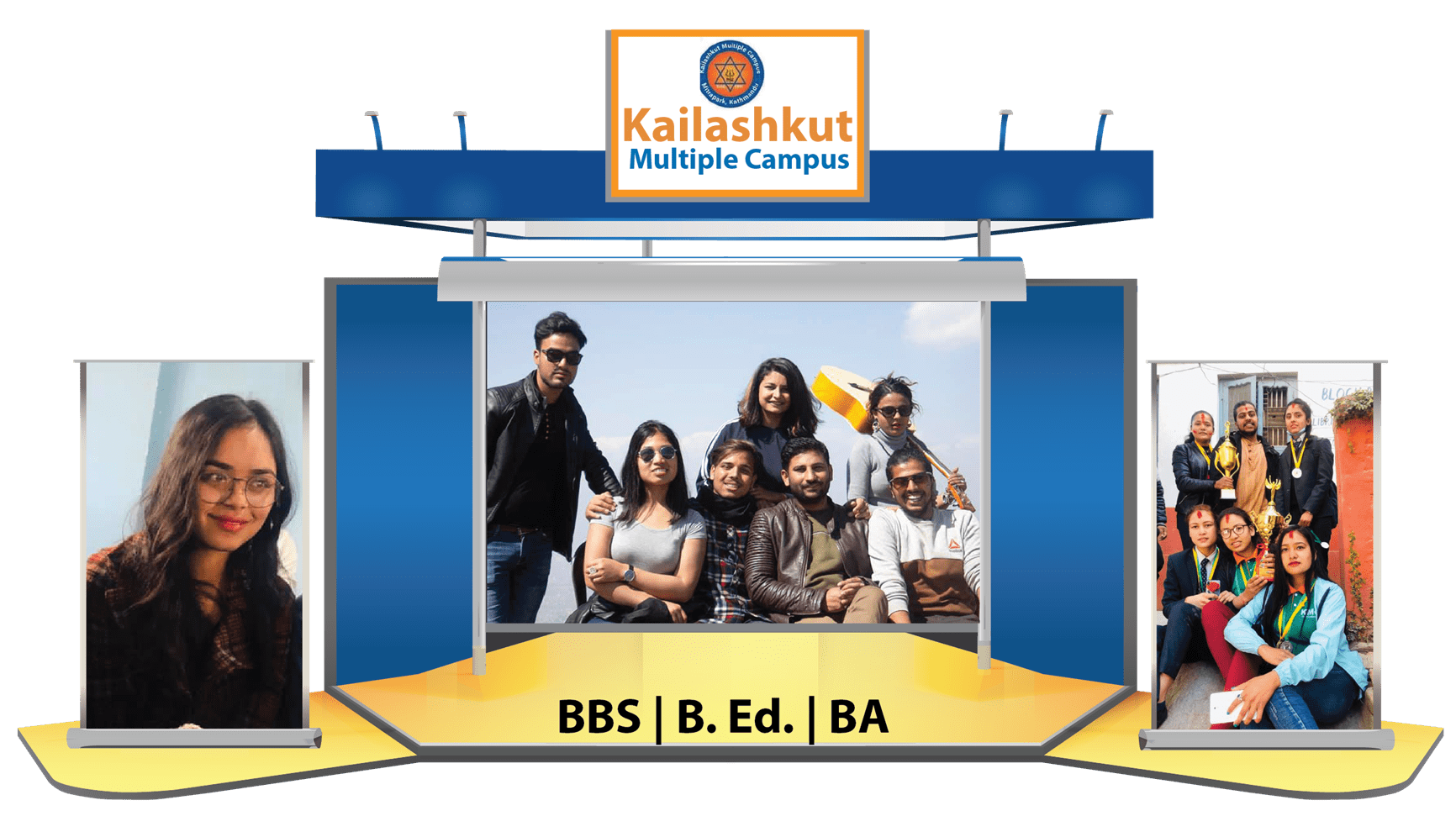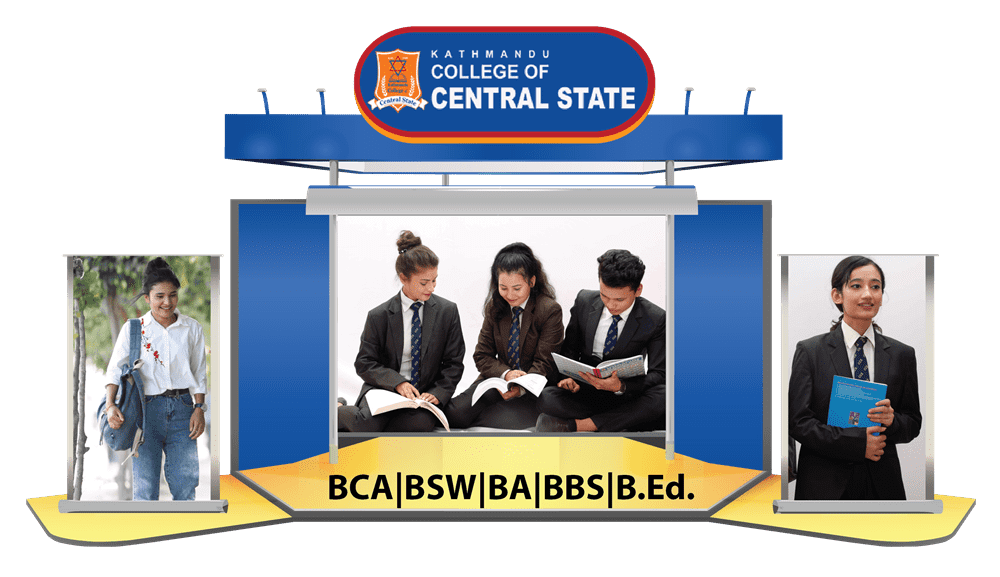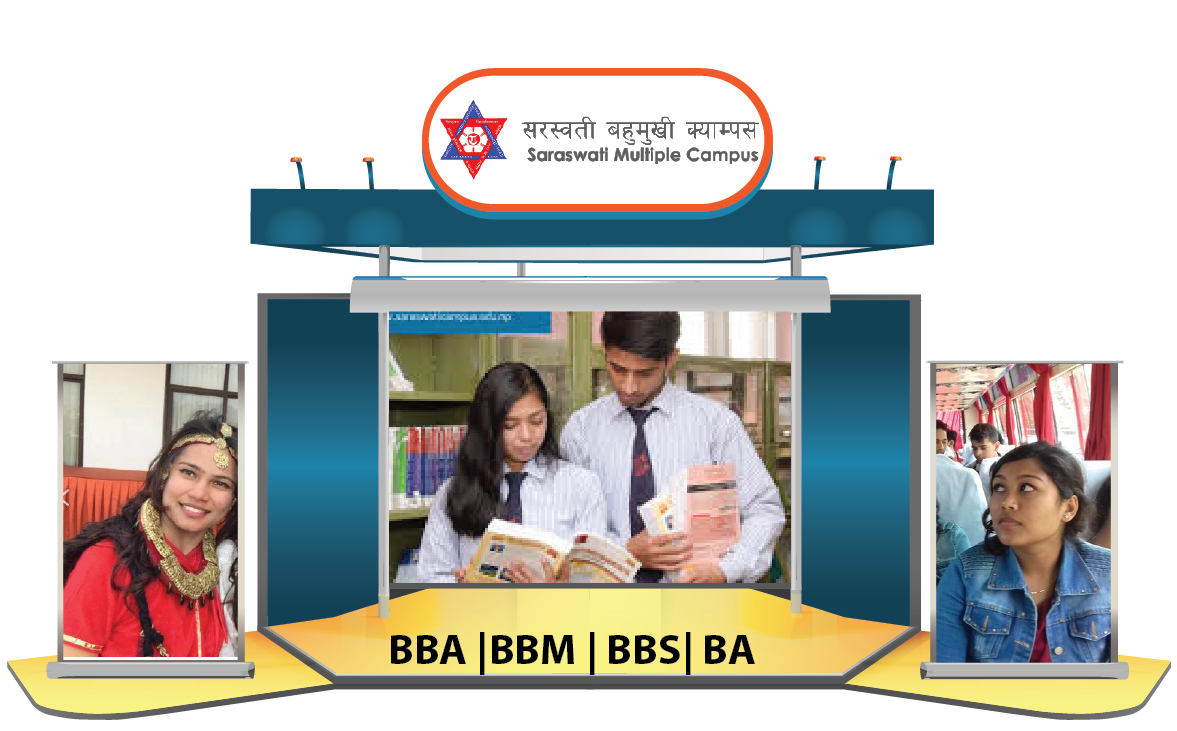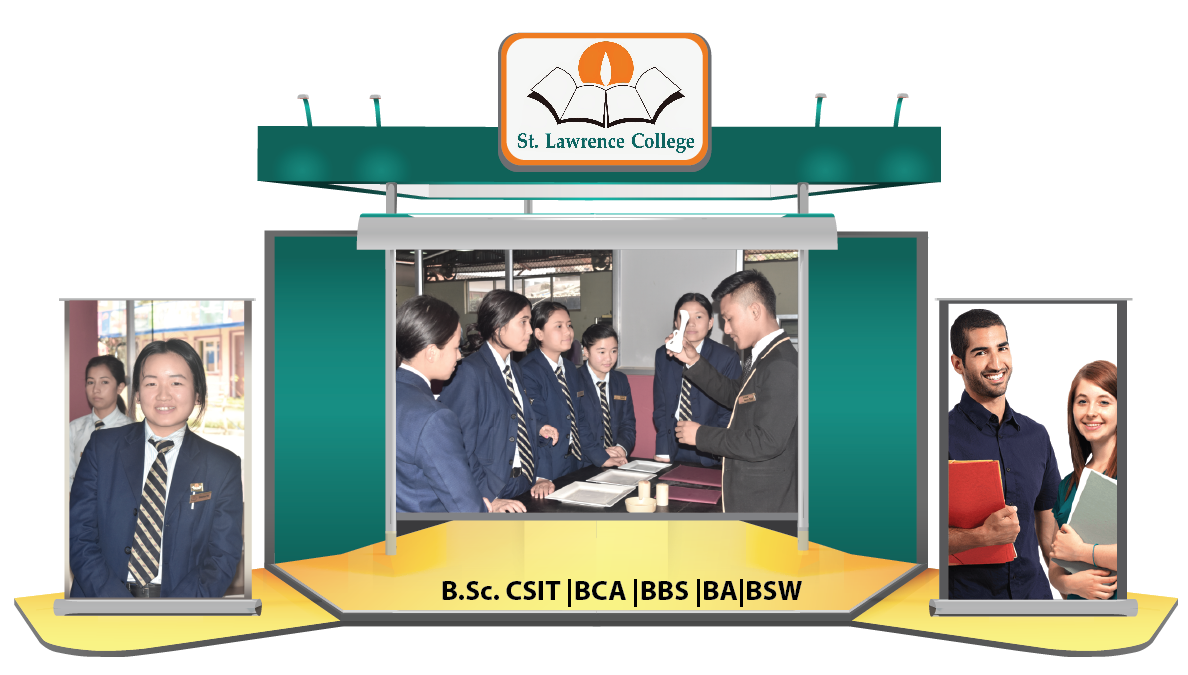Course Description
Tribhuvan University has launched four-year bachelor’s course in BA from the academic year 2076/077 under the Faculty of Humanities and Social Sciences.
It is the inter-disciplinary subjects where students can study Compulsory English, Anthropology, Geography, History Sociology, Psychology, Economics, Nepal Bhasa, Culture, Rural Development, Social Work, Film Studies, Hindi, Nepali Linguistics and Population Studies within the same stream.
The four-year course is of 2,000 marks (500 marks each year) and students can choose two subjects of 700 marks each as their majors and two subjects of 100 marks each as elective subjects.
There will be three compulsory subjects — English, Nepali and Nepal Studies. English will be of 200 marks, Nepali 100 marks and Nepal Studies 100 marks. English has been made compulsory in the first and third years, while Nepali will be compulsory in the second year.
The students will be evaluated on the basis of written examinations of 70 marks, while 30 marks will be for internal assessment, including mini project, classroom presentation and teamwork for each subject.
Admission Guideline
Tribhuvan University has launched four-year bachelor’s course in BA from the academic year 2076/077 under the Faculty of Humanities and Social Sciences.
It is the inter-disciplinary subjects where students can study Compulsory English, Anthropology, Geography, History Sociology, Psychology, Economics, Nepal Bhasa, Culture, Rural Development, Social Work, Film Studies, Hindi, Nepali Linguistics and Population Studies within the same stream.
The four-year course is of 2,000 marks (500 marks each year) and students can choose two subjects of 700 marks each as their majors and two subjects of 100 marks each as elective subjects.
There will be three compulsory subjects — English, Nepali and Nepal Studies. English will be of 200 marks, Nepali 100 marks and Nepal Studies 100 marks. English has been made compulsory in the first and third years, while Nepali will be compulsory in the second year.
The students will be evaluated on the basis of written examinations of 70 marks, while 30 marks will be for internal assessment, including mini project, classroom presentation and teamwork for each subject.
Eligibility
Eligibility
- Students should have secured at least D+ in all subjects in Grade 11 and Grade 12.
OR
- Must have completed the intermediate, Proficiency Certificate or 10+2 level, in Humanities or Science or Management Stream from Tribhuvan University or from any other University or Board recognized by Tribhuvan University.
- Students desirous of studying Major English/Economics in the BA Program may do so, but are required to pass the Major English Subject within three years at +2 or PCL recognized by TU if they have not already studied this course at +2 or PCL Level
- Students who have studied any other subject at +2 or PCL level can apply for admission to Major subjects like Rural Development, Social Work and Sociology in the BA Program.
- Students desirous of studying Journalism and Mass Communication as a Major subject in BA program must have studied Journalism/Mass Communication at +2 or PCL can apply for Journalism subject.
Job Prospects
Further Studies
If the applicant wants to study any subject other then the one s/he has majored in BA, s/he may opt for Nepalese History, Culture and Archaeology, Rural Development, Political Science, Library Science, Sociology, Anthropology, Maithali, History, Nepal Bhasa, Strategies Studies, Geography, Conflict, Peace and Development Studies, Population Studies and Buddhist Studies.
In case of MA in English, Nepali and Sanskrit, applicants who have majored in the respective subjects from other faculties only may apply for admissions.
Syllabus
| Sl.No | BA Political Science Syllabus |
|---|---|
| 1 | Language - MIL/ English Environmental Science |
| 2 | Understanding Political Theory |
| 3 | Constitutional Government and Democracy in India |
| 4 | Generic Elective-I |
| 5 | Environmental Science Language - MIL/ English |
| 6 | Political Theory-Concepts and Debates |
| 7 | Political Process in India |
| 8 | Generic Elective-II |
| 9 | Introduction to Comparative Government & Politics |
| 10 | Perspectives on Public Administration |
| 11 | Perspectives on International Relations |
| 12 | Generic Elective-III |
| 13 | Ability Enhancement Course-I |
| 14 | Pol. Process & Inst. in Comparative Perspective |
| 15 | Public Policy and Administration in India |
| 16 | Global Politics |
| 17 | Generic Elective-IV |
| 18 | Ability Enhancement Course-II |
| 19 | Classical Political Philosophy |
| 20 | Modern Indian Political Thought-I |
| 21 | Discipline-Specific Elective-I |
| 22 | Discipline-Specific Elective-II |
| 23 | Modern Political Philosophy |
| 24 | Indian Political Thought-II |
| 25 | Discipline-Specific Elective-III |
| 26 | Discipline-Specific Elective-IV |
| Sl.No | BA History Syllabus |
|---|---|
| 1 | History of India-I |
| 2 | Social Formations and Cultural Patterns of the Ancient World |
| 3 | History of India-II |
| 4 | Social Formations and Cultural Patterns of the Medieval World |
| 5 | History of India-III (c. 750-1206) |
| 6 | Rise of Modern West-I |
| 7 | History of India IV (c.1206-1550) |
| 8 | Rise of Modern West -11 |
| 9 | History of India-V (c. 1550-1605) |
| 10 | History of India-VI (c. 1750-1857 |
| 11 | History of Modern Europe-I (c. 1780-1939) |
| 12 | History of India-VII (c. 1605-1750) |
| 13 | History of India-VIII (c. 1857-1950) |
| 14 | History of Modern Europe-II (1780-1939) |
| 15 | History Of Southeast Asia-The 19TH Century |
| 16 | History Of Southeast Asia-The 20TH Century |
| 17 | History of Modern East Asia-I(c.1840-1919) |
| 18 | History of Modern East Asia-1I (c. 1868-1945) |
| Generic Elective (Interdisciplinary Any Four) | |
| 19 | Environmental Issues In India |
| 20 | Research Methodology in History |
| 21 | Making of Contemporary India |
| 22 | Delhi: Ancient |
| 23 | Delhi: Medieval |
| 24 | Delhi: Modern |
| 25 | Issues in the Contemporary World |
| Any Two: Understanding Heritage/ Art Appreciation: An Introduction to Indian Art/ Archives and museums/ Understanding Popular Culture | |
| Discipline-Specific Elective (Any Four) | |
| 26 | History Of United States Of America-1(C. 1776 -1945) |
| 27 | History Of United States Of America-I1(C. 1776 - 1945) |
| 28 | History Of The USSR-I (c. 1917- 1964) |
| 29 | History Of The USSR-II (c. 1917- 1964) |
| 30 | History Of Africa (c. 1500 - 1960s) |
| Sl.No | BA Psychology Syllabus |
|---|---|
| 1 | Introduction to Psychology |
| 2 | Statistical Methods for Psychological Research-I |
| 3 | Environmental Science |
| 4 | General Psychology |
| 5 | Biopsychology |
| 6 | Psychology of Individual Differences |
| 7 | English Communication |
| 8 | Youth, Gender and Identity |
| 9 | Development of Psychological |
| 10 | Psychological Research |
| 11 | Social Psychology |
| 12 | Emotional Intelligence |
| 13 | Psychology for Health and Well-being |
| 14 | Understanding Psychological Disorders |
| 15 | Statistical Methods for Psychological Research-II |
| 16 | Applied Social Psychology |
| 17 | Stress Management |
| 18 | Psychology at Work |
| 19 | Dealing with Psychological Disorders |
| 20 | Developmental Psychology |
| 21 | Positive Psychology |
| 22 | Human Resource Management |
| 23 | Organizational Behavior |
| 24 | Counseling Psychology |
| 25 | Health Psychology |
| 26 | Community Psychology |
| Sl.No | BA Philosophy Syllabus |
|---|---|
| 1 | Indian Philosophy |
| 2 | Logic |
| 3 | Greek Philosophy |
| 4 | Ethics |
| 5 | Western Philosophy: Descartes to Kant |
| 6 | Social & Political Philosophy: Indian and Western |
| 7 | Applied Ethics |
| 8 | Text of Indian Philosophy |
| 9 | Text of Western Philosophy |
| 10 | Truth-Functional Logic |
| 11 | Analytic Philosophy |
| 12 | Continental Philosophy |
| 13 | Philosophy of Religion (Indian & Western) |
| 14 | Philosophy of Language (Indian & Western) |
| 15 | Discipline-Specific Elective-4 (DSE) Subject Centric (Any Four) |
| 16 | Philosophy of Mind |
| 17 | Philosophy of Science |
| 18 | Philosophy of Logic |
| 19 | Knowledge and Scepticism |
| 20 | Aesthetics |
| 21 | Indian Theories of Consciousness |
| 22 | Philosophy of Law |
| 23 | Indian Materialism |
| 24 | Generic Elective (GE)- 4 (Inter-Disciplinary) |
| 25 | Ethics In Public Domain |
| 26 | Formal Logic |
| 27 | Feminism |
| 28 | Bio-Ethics |
| 29 | Skill Enhancement Course (SEC)-2 |
| 30 | Critical Thinking |
| 31 | Art And Film Appreciation |
| Sl.No | BA Social Work Syllabus |
|---|---|
| 1 | Beginnings of Social Work |
| 2 | Fundamentals of Social Work |
| 3 | Sociology for Social Work |
| 4 | Concurrent Field Work |
| 5 | Concurrent- Qualifying Language |
| 6 | Basic Concepts in Psychology |
| 7 | Contemporary Social Concerns |
| 8 | Social Psychology |
| 9 | Concurrent - Credit Language |
| 10 | Working with Individuals |
| 11 | Working with Groups |
| 12 | Social Deviance and Social Problems |
| 13 | Community Organisation |
| 14 | Communication and Development |
| 15 | Physical, Mental, and Community Health |
| 16 | Social Policy and Social Development |
| 17 | Social Legislation and Human Rights |
| 18 | Social Action and Movements |
| 19 | Social Welfare and Administration |
| 20 | Research in Social Work |
| 21 | Areas of Social Work Practice II |
| 22 | NGO Movement |
| Sl.No | BA Economics Syllabus |
|---|---|
| 1 | Introductory Microeconomics |
| 2 | Mathematical Methods for Economics-I |
| 3 | Ability Enhancement Compulsory Course-I |
| 4 | Generic Elective-I |
| 5 | Introductory Macroeconomics |
| 6 | Mathematical Methods for Economics-II |
| 7 | Ability Enhancement Compulsory Course-II |
| 8 | Generic Elective-II |
| 9 | Intermediate Microeconomics-I |
| 10 | Intermediate Macroeconomics-I |
| 11 | Statistical Methods for Economics |
| 12 | Skill Enhancement Course-I |
| 13 | Generic Elective-III |
| 14 | Intermediate Microeconomics-II |
| 15 | Intermediate Macroeconomics-II |
| 16 | Introductory Econometrics |
| 17 | Skill Enhancement Course-II |
| 18 | Generic Elective-IV |
| 19 | Indian Economy-I |
| 20 | Development Economics-I |
| 21 | Discipline-Specific Elective-I |
| 22 | Discipline-Specific Elective - II |
| 23 | Indian Economy - II |
| 24 | Development Economics-II |
| 25 | Discipline-Specific Elective-III |
| 26 | Discipline-Specific Elective-IV |
| Sl.No | BA Archaeology Syllabus |
|---|---|
| 1 | Methodology and Perspectives of Social Science |
| 2 | History of Art and Architecture in India |
| 3 | Basics of Archaeology |
| 4 | Introduction to Sociology |
| 5 | Cultural Transition in Pre-Modern India |
| 6 | Methods of Archaeology |
| 7 | History of Folklore |
| 8 | Development of Sociological Theory |
| 9 | Making of Modern India |
| 10 | Informatics |
| 11 | Basics of Indian Numismatics |
| 12 | Introduction to Political Science |
| 13 | Understanding the Past |
| 14 | Early Societies in India |
| 15 | Development of Numismatics in India |
| 16 | Governmental Machinery and Processes |
| 17 | Growth of Indian Archaeology |
| 18 | Introduction to Archives and Records |
| 19 | Environmental History |
| 20 | Archaeological Sites and Monuments in India |
| 21 | Archival Conservation and Reprography |
| Sl.No | BA Sociology Syllabus |
|---|---|
| 1 | Introduction to Sociology |
| 2 | Sociology of India |
| 3 | Sociological Theories |
| 4 | Methods of Sociological Enquiry |
| 5 | Religion and Society |
| 6 | Marriage, Family, and Kinship |
| 7 | Social Stratification |
| 8 | Gender and Sexuality |
| 9 | Polity and Society in India |
| 10 | Economy and Society |
| 11 | Techniques of Social Research |
| 12 | Gender Sensitisation |
| 13 | Society through the Visual |
| Sl.No | BA Geography Syllabus |
|---|---|
| 1 | Geomorphology |
| 2 | Climatology |
| 3 | Cartographic Techniques |
| 4 | Geography of Population |
| 5 | Concurrent - Qualifying Language |
| 6 | Analytical Physical Geography |
| 7 | Oceanography |
| 8 | Thematic Cartography (Practical) |
| 9 | Geography of Settlements |
| 10 | Concurrent - Credit Language |
| 11 | Economic Geography |
| 12 | Environmental Geography |
| 13 | Remote Sensing (Practical) |
| 14 | Urban Geography |
| 15 | Concurrent - Interdisciplinary |
| 16 | Geography of Natural Resources |
| 17 | Spatial Dimensions of Development |
| 18 | Statistical Methods in Geography |
| 19 | Geography of India |
| 20 | Concurrent - Discipline Centered I |
| 21 | Evolution of Geographical Thought |
| 22 | Social Geography |
| 23 | Field Techniques |
| 24 | Agricultural Geography* (Optional) |
| 25 | BioGeography* (Optional) |
| 26 | Political Geography* (Optional) |
| 27 | Disaster Management |
| 28 | Regional Planning: Case Studies |
| 29 | Geographical Information System |
| 30 | Geography of Tourism* (Optional) |
| 31 | Contemporary Environmental Issues* (Optional) |
| 32 | Rural Development* (Optional) |
| Sl.No | BA Anthropology Syllabus |
|---|---|
| 1 | Introduction to Social Anthropology |
| 2 | Introduction to Biological Anthropology |
| 3 | Archaeological Anthropology-I |
| 4 | Technical Writing & Communication in English/ Computational Skills |
| 5 | Archaeological Anthropology-II |
| 6 | Anthropology of Kinship |
| 7 | Biostatistics and Data Analysis |
| 8 | Theories of Culture and Society |
| 9 | Human Genetics |
| 10 | Primate Biology / Cell Biology-I |
| 11 | Molecular Biology-I |
| 12 | Tribes and Peasants in India |
| 13 | Anthropology of Religion, Politics & Economy |
| 14 | Biodiversity & Indigenous Knowledge / Cell Biology-II |
| 15 | Anthropology of India / Molecular Biology-II |
| 16 | Human Ecology: Biological Dimensions |
| 17 | Biological Diversity in Human Populations |
| 18 | Human Ecology: Social and Cultural Dimensions |
| 19 | Genetics & Genomics-I |
| 20 | Fieldwork Dissertation |
| 21 | Fundamental of Human Origins and Evolution |
| 22 | Genomic Diversity in Human Populations |
| 23 | Anthropology In Practice / Genetics & Genomics-II |
| Sl.No | BA Linguistics Syllabus |
|---|---|
| Core Courses-Discipline - Specific Course (DSC)-4 | |
| 1 | Introduction to Language |
| 2 | Elementary Phonetics and Phonology |
| 3 | Morphosyntactic Processes |
| 4 | Language, Mind, and Brain |
| Discipline-Specific Elective (DSE) Any Two | |
| 5 | Language, Society and Language change |
| 6 | Linguistic Tradition and Historical Linguistics. |
| Generic Elective (Inter-Disciplinary) Any Two | |
| 7 | Issues in Applied Linguistics-I |
| 8 | Issues in Applied Linguistics-II |
| or | |
| 9 | GE-2(ii): Language Interfaces |
| Skill Enhancement Course [SEC] | |
| 10 | Understanding Human Language |
| 11 | Understanding Hindi as a Foreign Language |
| 12 | Understanding Concepts of Translation |
| 13 | Understanding Concepts of Language Acquisition and Intervention. |
BA Subjects
Among the vast variety of subject combinations available to aspirants pursuing BA courses, the following are the most noteworthy:
| Sl.No | BA Subjects |
|---|---|
| 1 | Anthropology |
| 2 | Archaeology |
| 3 | Education |
| 4 | Economics |
| 5 | English |
| 6 | French |
| 7 | Geography |
| 8 | German |
| 9 | Hindi |
| 10 | History |
| 11 | Library Science |
| 12 | Literature |
| 13 | Mathematics |
| 14 | Philosophy |
| 15 | Political Science |
| 16 | Public Administration |
| 17 | Psychology |
| 18 | Sanskrit |
| 19 | Sociology |
BA Specialisations
Some of the popular specialization options available to the aspirants of BA course are listed as under:
| Sl.No | Specializations |
|---|---|
| 1 | BA Geography |
| 2 | BA Anthropology |
| 3 | BA Linguistics |
| 4 | BA Rural Studies |
| 5 | BA Hindi |
| 6 | BA Bengali |
| 7 | BA Tamil |
| 8 | BA Marathi |
| 9 | BA Telugu |
| 10 | BA Kannada |
| 11 | BA Malayalam |
| 12 | BA Assamese |
| 13 | BA Bihari |
| 14 | BA Odiya |
| 15 | BA Journalism |
| 16 | BA Psychology |
| 17 | BA German |
| 18 | BA French |
| 19 | BA Italian |
| 20 | BA Hebrew |
| 21 | BA Spanish |
| 22 | BA Russian |
| 23 | BA Chinese |
| 24 | BA Japanese |
| 25 | BA Photography |
| 26 | BA Korean |
| 27 | BA Agro Sciences |
| 28 | BA Airlines, Hospitality and Customer Care |
| 29 | BA Ancient History |
| 30 | BA Ancient Indian Culture |
| 31 | BA Arabic |
| 32 | BA Cinematography |
| 33 | BA Corporate Secretaryship |
| 34 | BA Comparative Religion |
| 35 | BA Criminology |
| 36 | BA Culinary Art |
| 37 | BA Defence and Strategic Studies |
| 38 | BA Drawing and Painting |
| 39 | BA Education |
| 40 | BA Punjabi |
| 41 | BA Gujarati |


